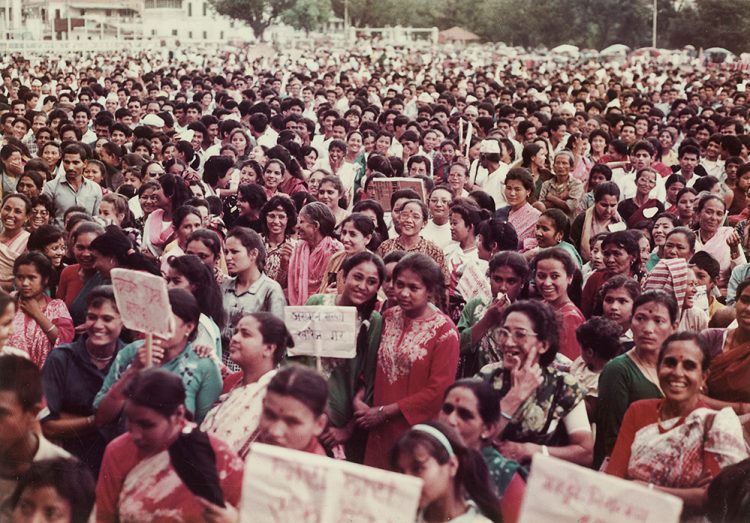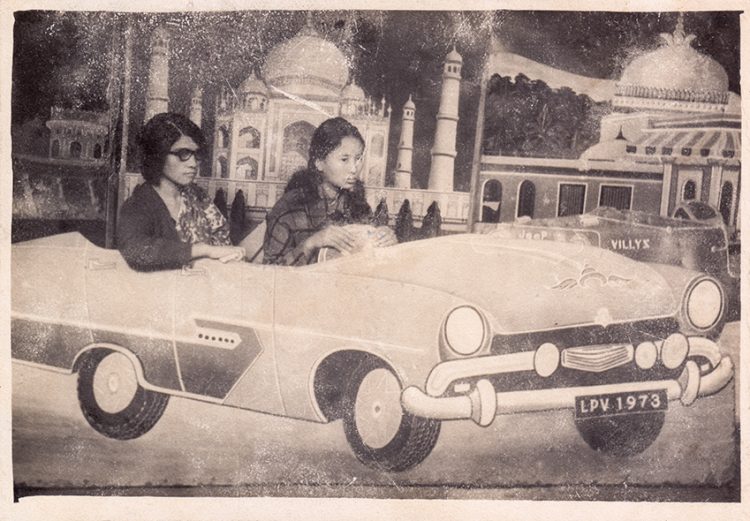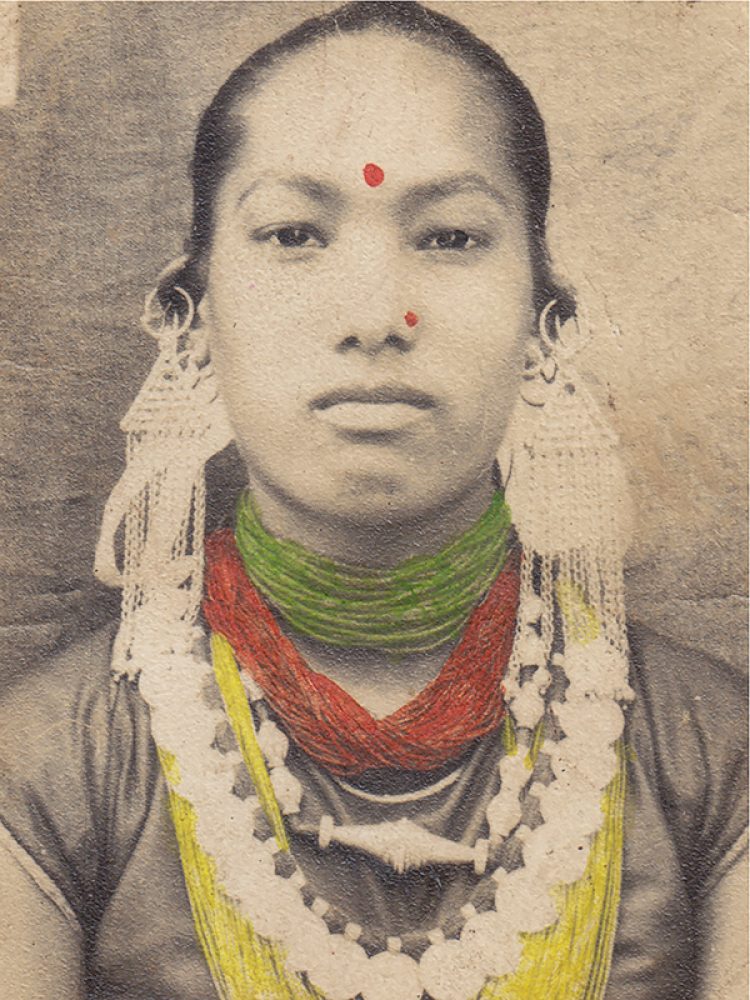Nepal Picture Library
The Public Life of Women: A Feminist Memory project

Nepal Picture Library
To become public is to be seen and accounted for in history. The journey of Nepali women from within the boundaries of domesticity to the openness of public life is a move from obscurity to memory. In 2018, the Nepal Picture Library established a dedicated women’s archive The Feminist Memory Project (FMP). It builds on the feminist impulse to memorialize women’s pasts in the belief that the act of rendering their histories visible will advance the path for liberation.
The Public Life of Women chapter of FMP showcased here offers an alternative to the “official” history of Nepal’s democratic struggle over the last century, which is dominated by men and delineated women’s participation within certain prescribed norms of gender. Women themselves, however, were guided by this new era’s promise of inclusion in a universal community. In peering at this history from their perspective, the exhibition brings attention to the ways in which the entry of women into popular politics and public life gave rise to new positions and subjectivities within the contours of a male-dominated history.
Starting with the movement against the oligarchy of the Rana family and their imposed totalitarian regime in the kingdom of Nepal from 1846 to 1951, much of which occurred furtively in private domestic spaces, we move through the decades in an effort to amplify the visibility of women in Nepal’s political history. The collection showcases instances when women led political struggle, addressed assemblies, published and shaped opinion, and broke social norms.

Nepal Picture Library
Nepal Picture Library
Nepal Picture Library is a digital photo archive run by photo.circle—a platform for photography—in Kathmandu, Nepal, which strives to create an inclusive visual archive of Nepali social and cultural history. The archive serves as a repository for materials that can secure a multicultural and pluralist representation of Nepali history, encouraging deeper and more meaningful connections with the past.
Location: Chassé park

Nepal Picture Library